Life Saves the Planet Blog:
Water The role of water in cooling the planet, sustaining life, and the ways it is managed.
The role of water in cooling the planet, sustaining life, and the ways it is managed.
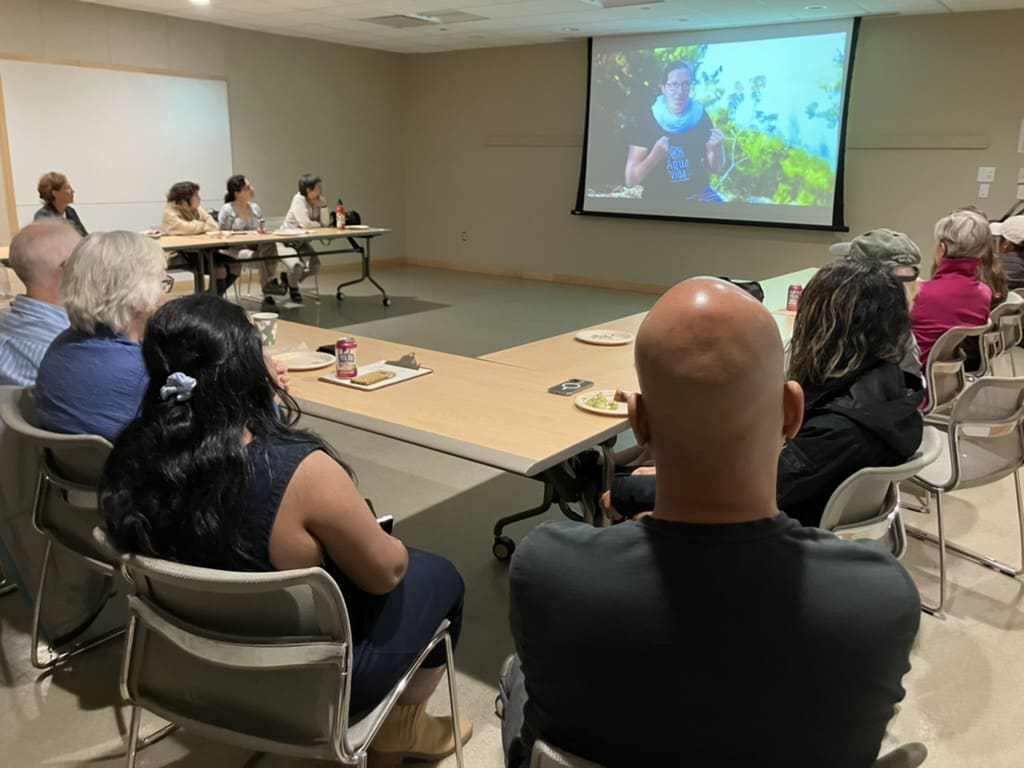
Reflecting on Water is Love: A Community Movie Night at Cambridge
In September, Poulomi Chakravarty reflected on Water Is Love during Bio4Climate’s community screening in Cambridge. More than just a film showing, the event became a space for connection, learning, and inspiration—where neighbors shared food, ideas, and stories about restoring water cycles. The screening highlighted how decentralized, community-led action can turn water into a source of…
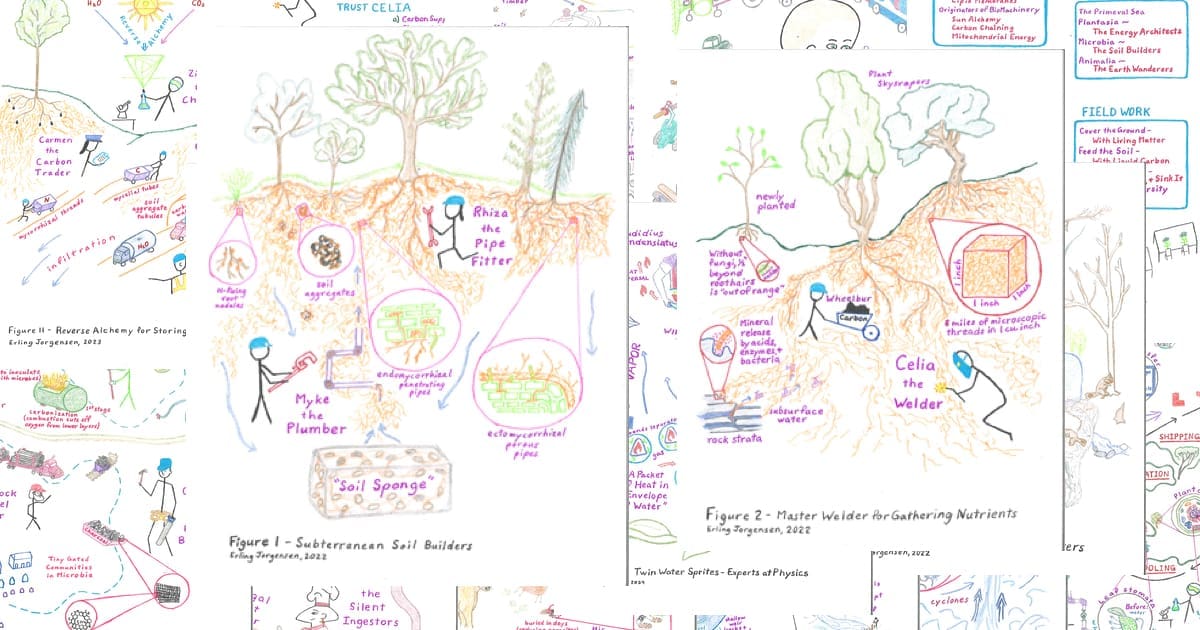
Journey of an Apprentice
Introduction by Jim Laurie Erling Jorgensen was a student in my “Systems Thinking and Scenario Building” course (Biodiversity 6) in the summer of 2022. He is determined to learn how life processes work and develop a scenario of restoring these processes. His goal is also to create a story that young people and adults with…
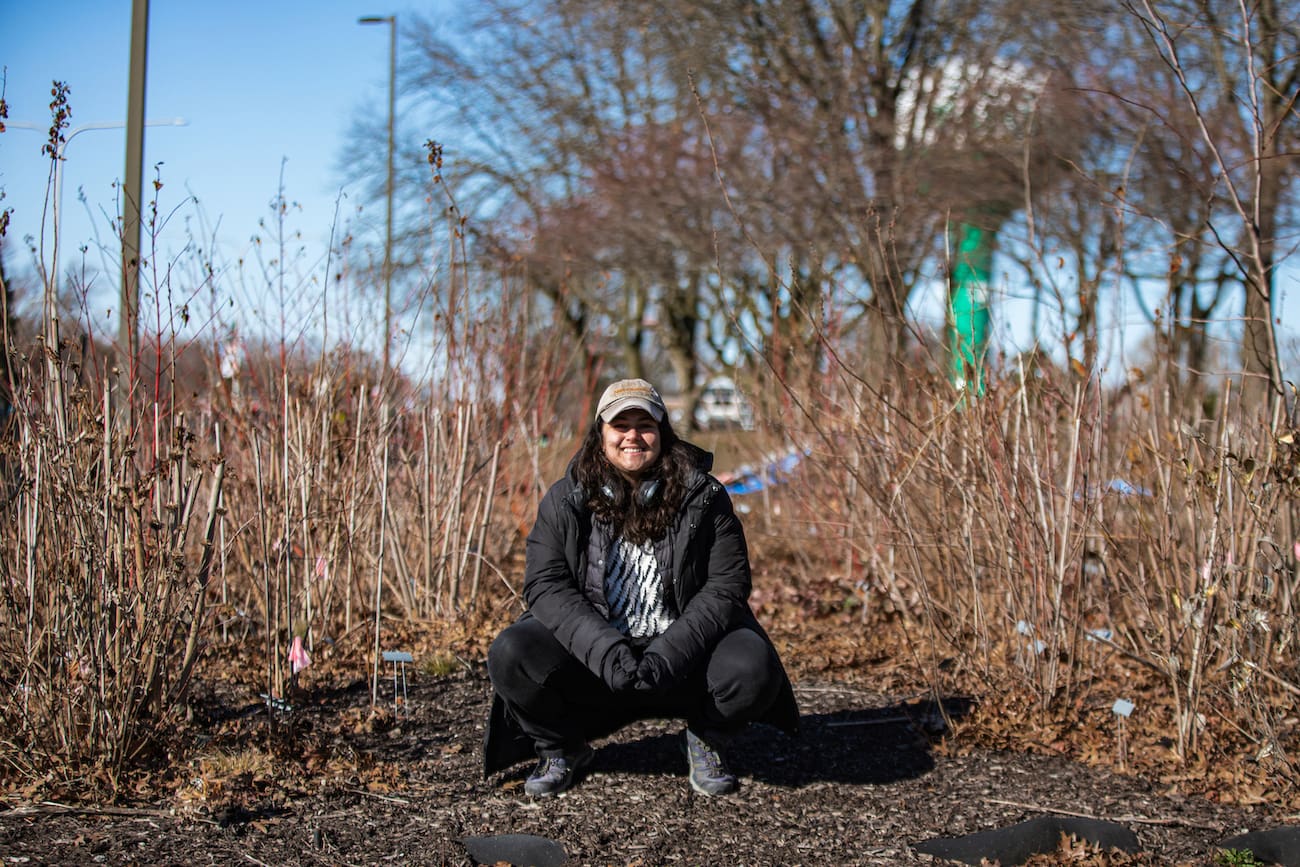
Rewilding the Windy City
I’ve loved Chicago from the first day I set foot there, and I’ve missed the Windy City since I left after college in 2018. When I had a chance to visit two weeks ago, I made it a point to try to understand Chicago’s ecosystems better, and check in on the many ways communities across…
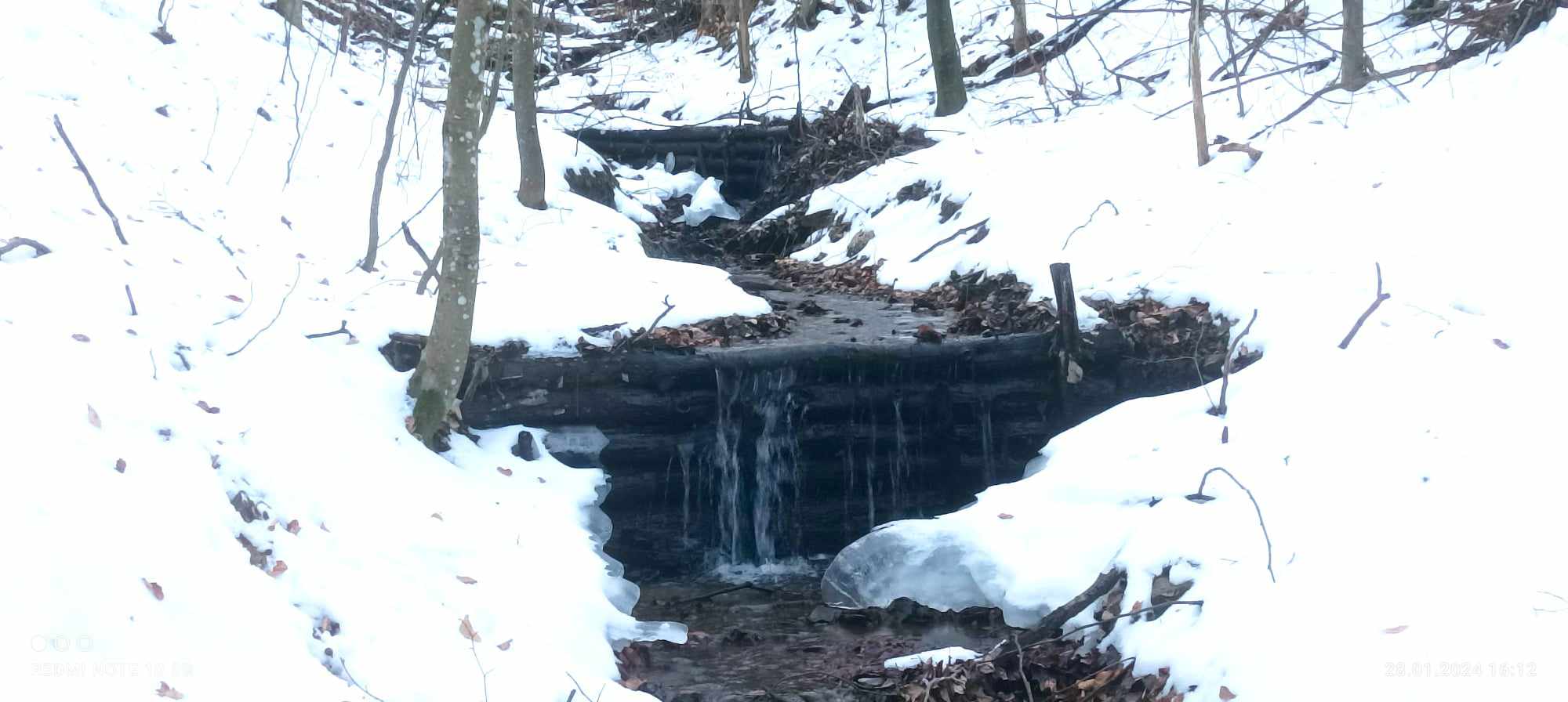
Slow Water Romance
As Valentine’s Day approaches, we invite you to experience a romantic journey in a winter wonderland. As the temperatures rise in February or earlier in our warming world, the snow melts, and we realize that the water cycle is a precious gift from the sun to all living creatures on Earth. Without the sun’s energy,…
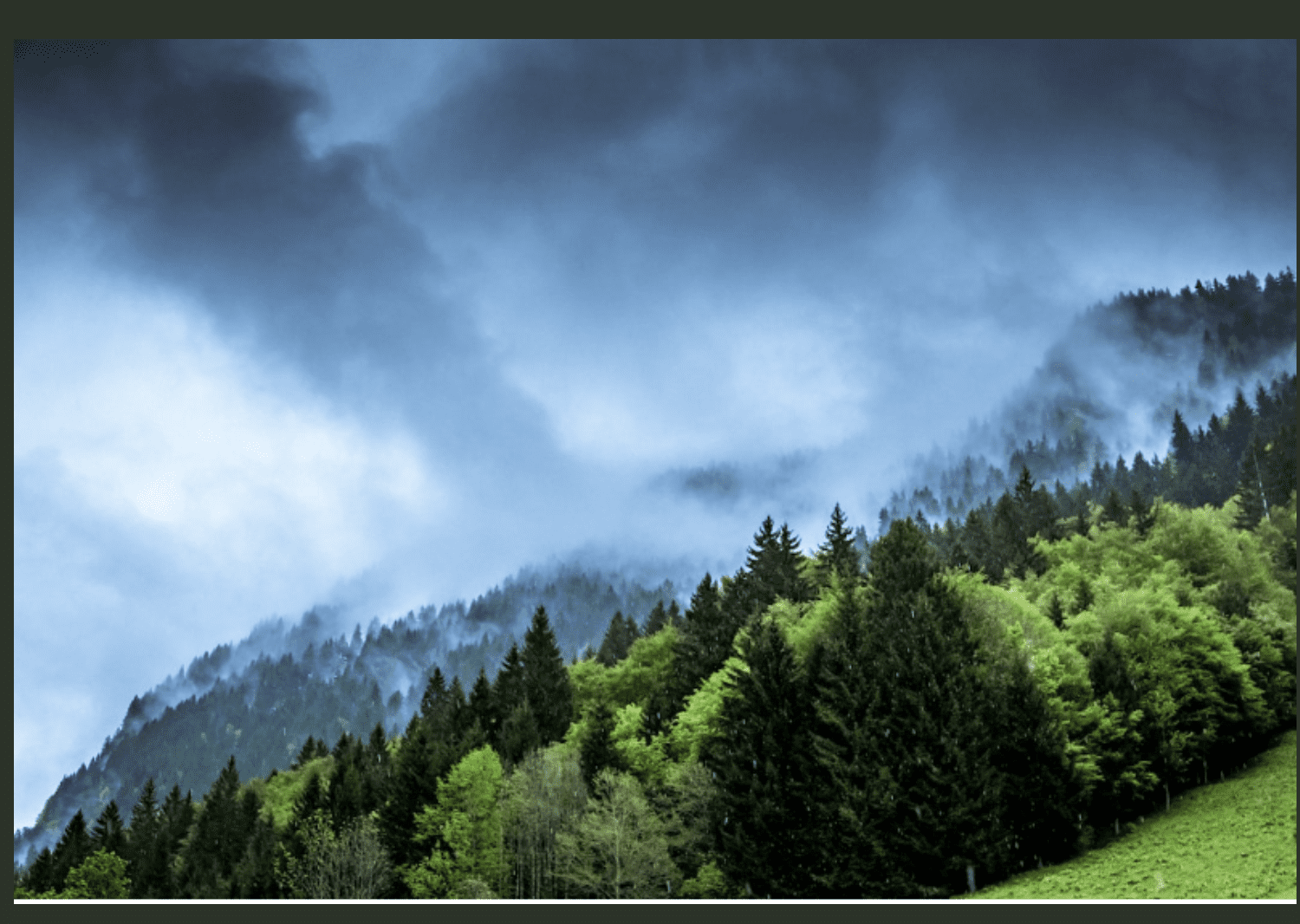
Intact ecosystems stabilize climate.
The more we disturb intact ecosystems, the less stable the climate that we have. Do we have systematic evidence-based resources to prove how natural ecosystems stabilize climate? Yes, we do! It would be helpful for science communicators and policymakers to have a resource with systematized evidence. For example:Primary forests have higher resilience against droughts than…
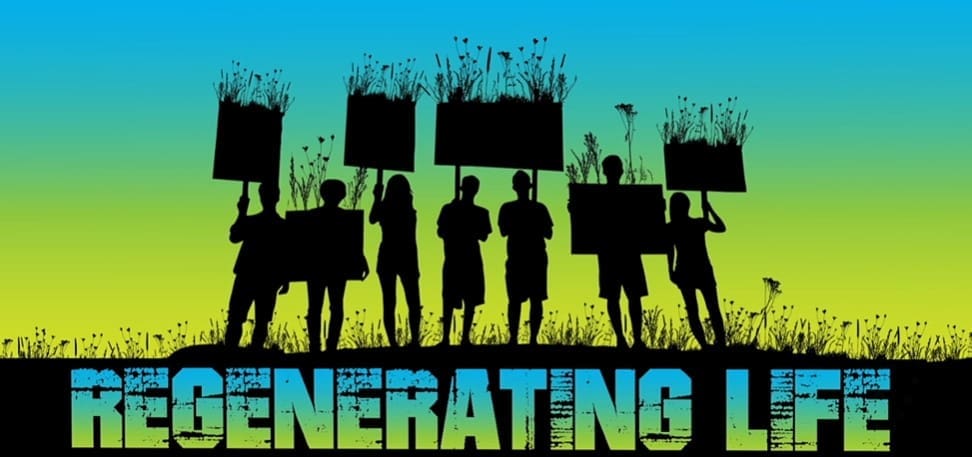
What a Great Day at Tufts: Regenerating Life Together
Our Boston Premiere of Regenerating Life at Tufts University was a tremendous success! It was exciting to see about 100 people come together to experience how John Feldman wove the many threads of the importance of nature to climate stability together in film. Conversation was lively during the lunch break, as people talked with exhibitors…
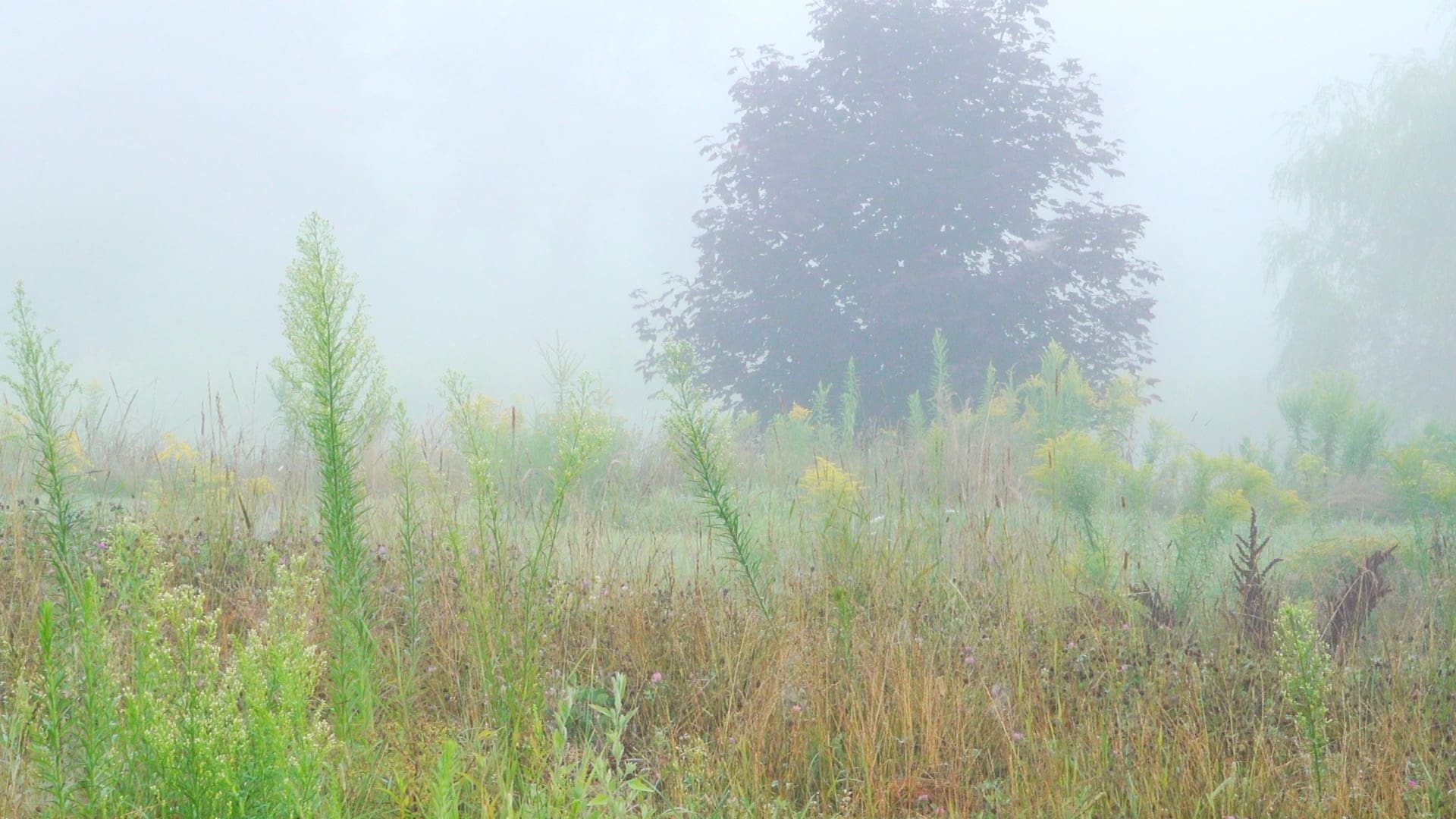
A Film that Affirms the Power of Life to Heal Our Planet
To a climate conversation long dominated by computer models and technological jargon, Regenerating Life: How to Cool the Planet, Feed the World and Live Happily Ever After brings some badly needed rain, along with dung beetles, sweating trees, fungal mycelia, cloud-making forests, beavers, worms, soil microbes, cow patties and whales. As more and more people…
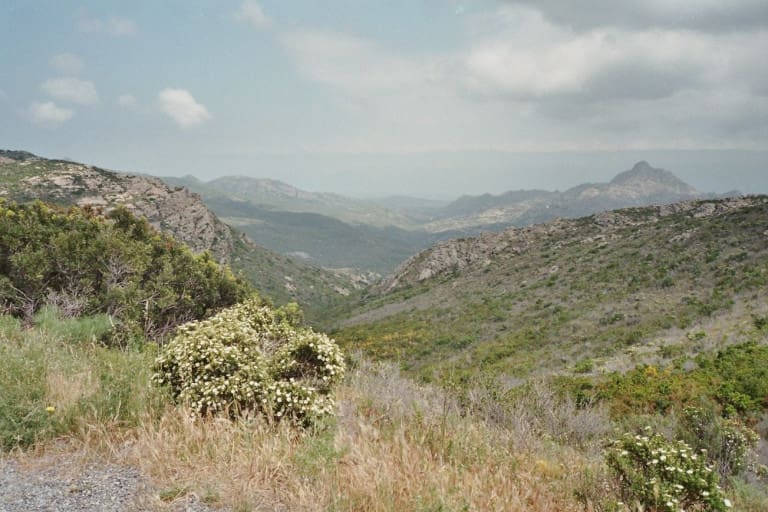
Millan Millan and the Mystery of the Missing Mediterranean Storms
I’d like to introduce this piece with a scenario. Suppose someone pointed out that you’d been looking at the climate through a pair of glasses with only one lens? Lifting them off your nose, they then provide you a new pair of glasses with two lenses. Suddenly, parts of the climate you couldn’t see before…
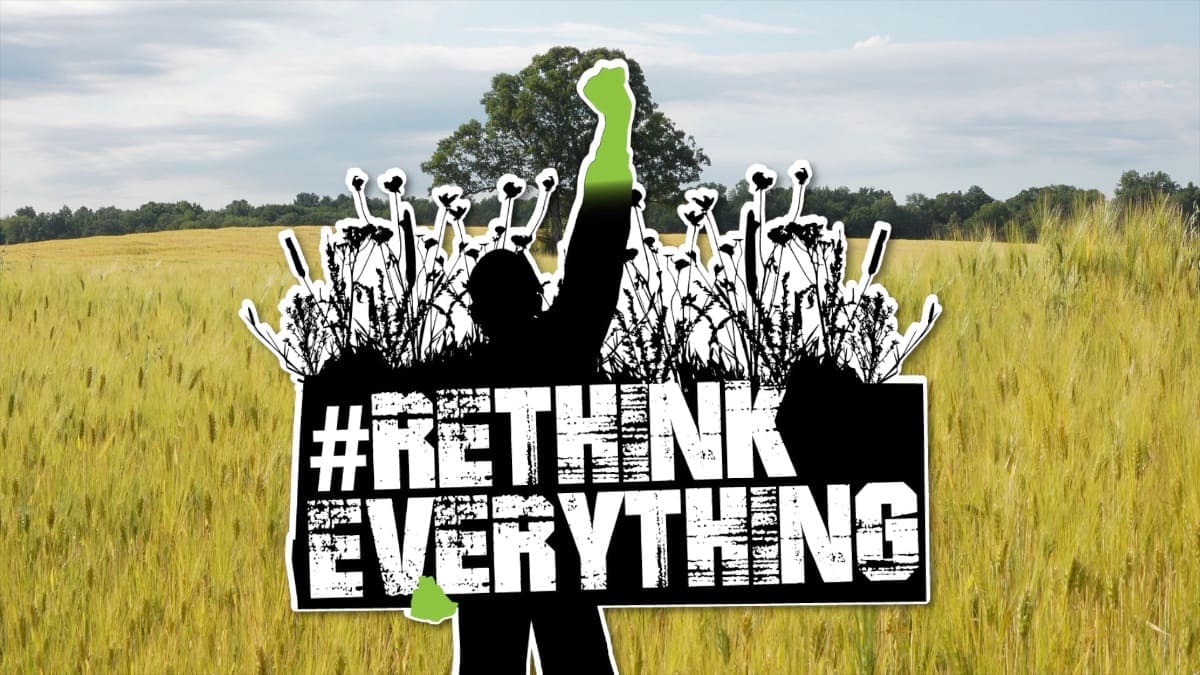
What Drives the Greenhouse Effect
One of the profound ways Australian Climatologist Walter Jehne influenced my thinking was in helping me see the other side of the greenhouse effect. We always think about the “insulating” gases, and not about the source of the heat. And that’s bare land… This introduces the first of my RegenLife Minutes: From the new documentary Regenerating Life, this…

Regenerating Life: Support the Film, Support the Movement!
John Feldman brings the voices of Bio4Climate together in his new film – Regenerating Life. When you donate to this campaign, part of your donation goes to support our work (as long as you fill in the box on the donation page with our name). And you get to see this groundbreaking film before the…

A Review Of John Feldman’s “Regenerating Life”
by Fred Jennings, Ecological Economist for Biodiversity for a Livable Climate Part One: “Water Cools The Planet” Runtime 41:43 John Feldman introduces himself and expresses surprise that this work got him thinking a lot about water. The film proceeds to talk about water in its many diverse aspects: as a powerful greenhouse gas; in its…
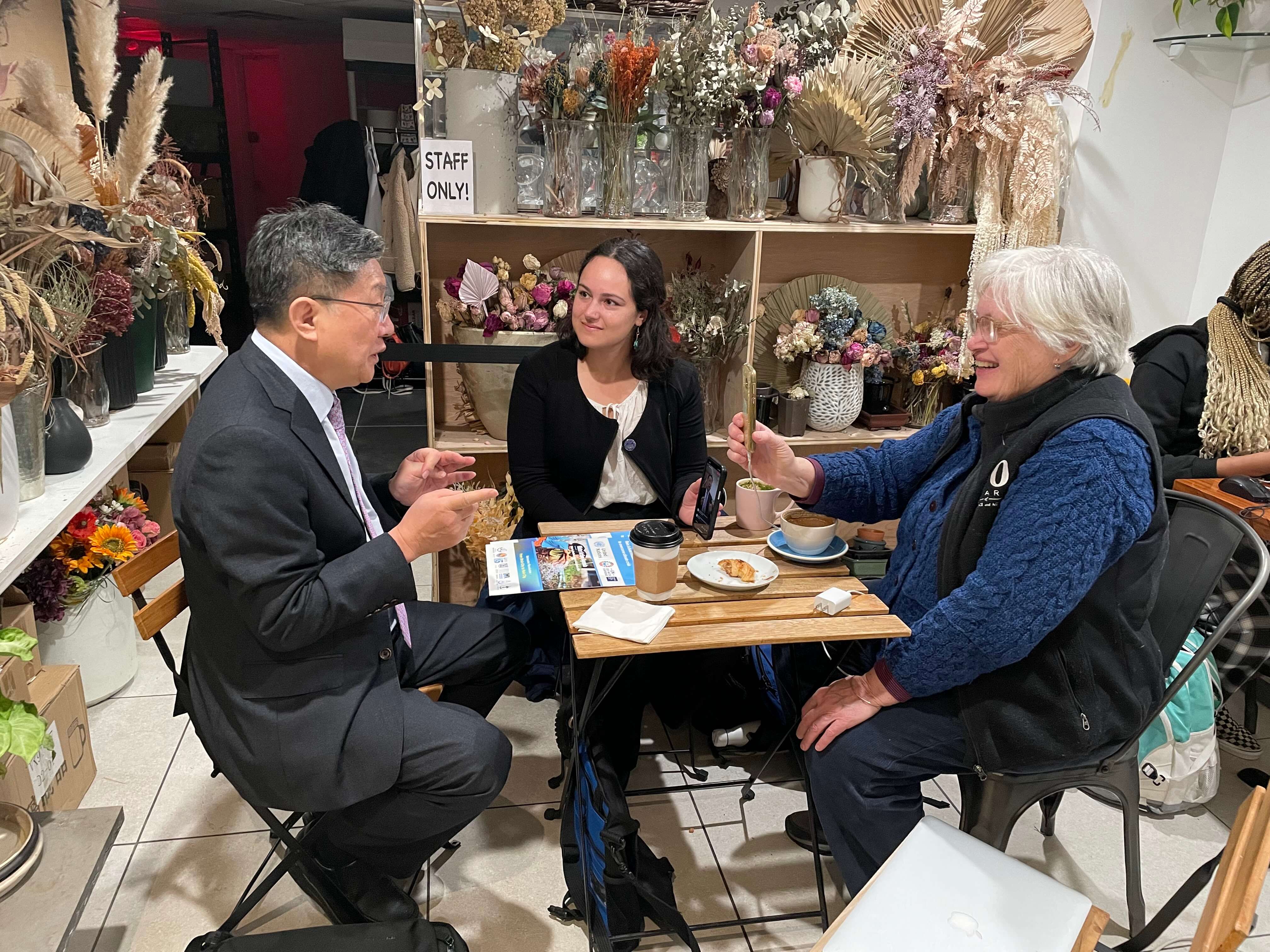
Report from the Conference of the Parties
United Nations, New York CityMarch 23-24, 2023 Biodiversity for a Livable Climate was in New York meeting with attendees of the Conference of Parties (COP) on Water. Board member Sue Butler and Assistant Director of Regenerative Projects Maya Dutta, working with Jon Schull from EcoRestoration Alliance, had meetings with several exciting global Water Advocates. Meeting…
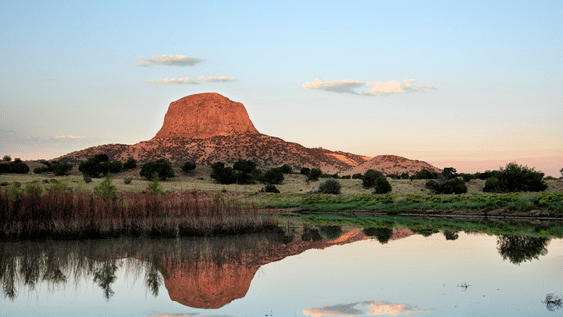
Our Underrated Climate Ally: The Small Water Cycle
Cabezon Peak after rain, Photo by John Fowler (CC BY 2.0) Although climate change is a global issue, it can and must be addressed locally. Our overall climate is shifting drastically, but local climates are also changing, and they don’t always get the same amount of attention. Local climates change when the environment is drastically…
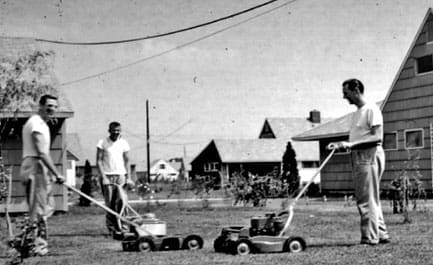
Urban Soil Restoration to Help Communities Manage Stormwater
Jan Lambert’s take: This article by Charles Hegberg, talks about the importance of soil restoration in urban settings for optimal stormwater infiltration. He writes: “We have hundreds of years of experience in making ‘Dirt’ – It’s time we start re-making ‘Soils’ on a landscape level, quickly.“ “It’s no secret: Americans take their lawns seriously –…
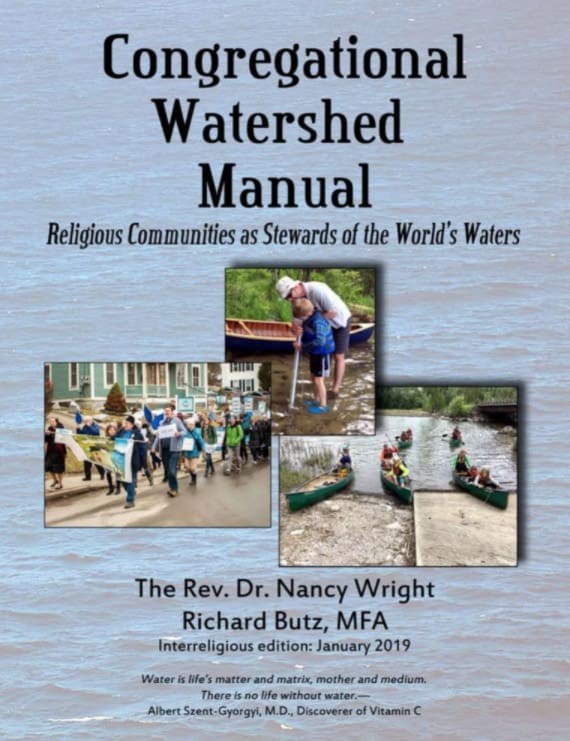
Congregational Watershed Manual
From Jan Lambert, Voices of Water for Climate Program Director: I have come to know authors Nancy Wright and Richard Butz from Ascension Lutheran Church in Burlington, Vermont as two delightful and well-informed people with a wonderful message to share of how people of faith can act for good for clean water, and for a…
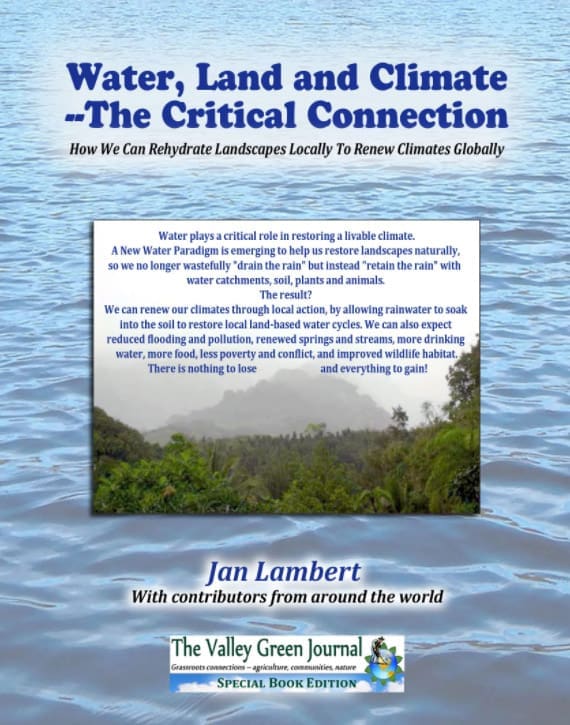
Water, Land, and Climate –The Critical Connection
Water plays a critical role in restoring a livable climate. A New Water Paradigm is emerging to help us restore landscapes naturally, so we no longer wastefully “drain the rain” but instead “retain the rain” with water catchments, soil, plants and animals. The result? We can renew our climates through local action, by allowing rainwater…
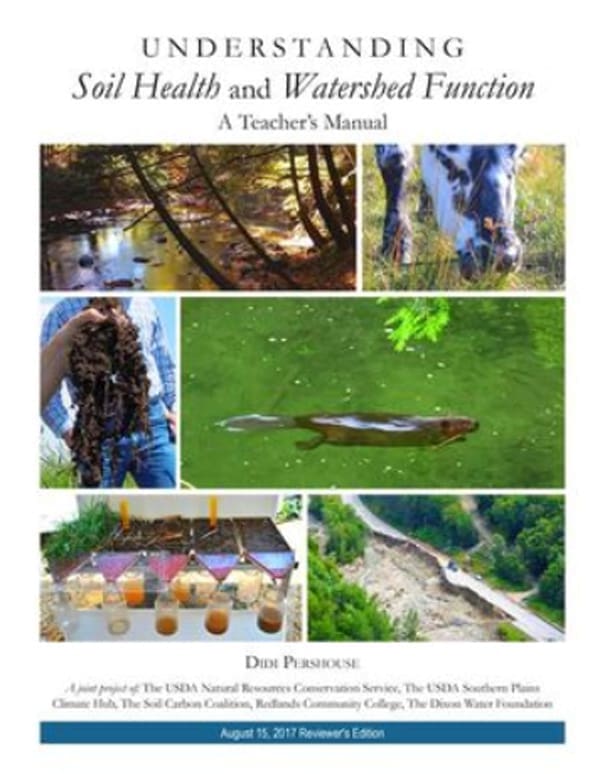
Working with Nature to Cool Climates through Plants, Soil, and Water
Jan’s Quick-Take: Didi is a world class educator and a real Vermonter who knows her stuff, and how to teach it to anyone who cares about soil and water. She is the great source for all aspects of the famed “soil carbon sponge.” We at Voices of Water for Climate consider her to be a…
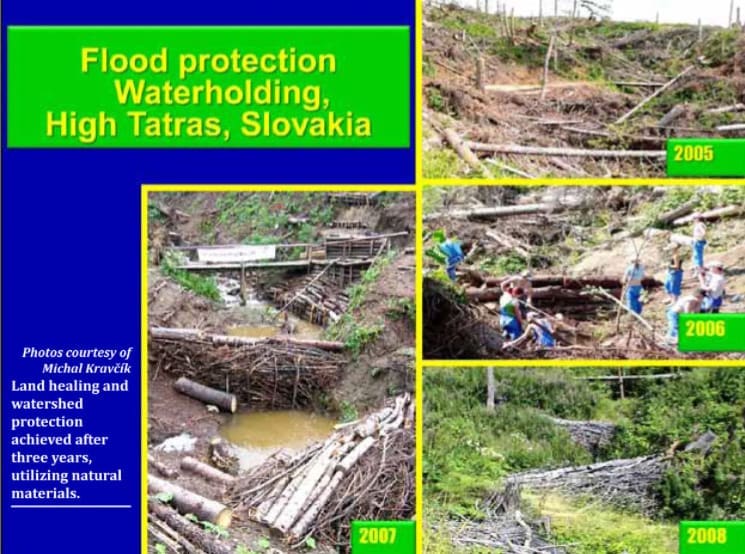
The New Water Paradigm Is Important For the Future of Humanity and the Earth
Jan Lambert’s Quick-Take: A brief letter written for the Valley Green Journal by Michal Kravčík . For much more information, see Water for the Recovery of the Climate-A New Water Paradigm. [FIX LINK] Abstract: In the Valley Green Journal November 2014 issue I introduced readers to Michal Kravčík, a scientist who is an expert in…
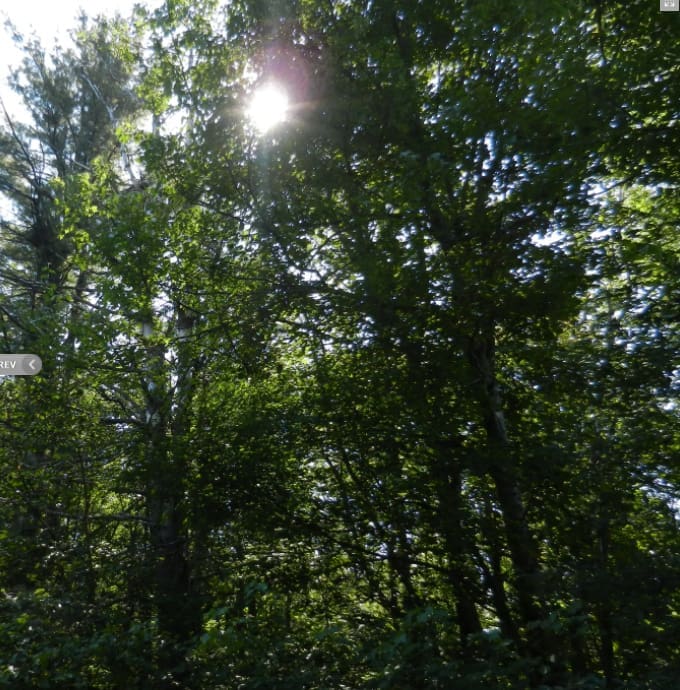
Evapotranspiration – A Driving Force in Landscape Sustainability
Jan Lambert’s Quick-Take: This is must reading if you really want to understand the dynamics of climate. No, this is not another piece on fossil fuel emissions! Jan Pokorny and his colleagues are leaders in presenting to all of us the vital interactions of water vapor, plants, and solar energy in creating and maintaining a…
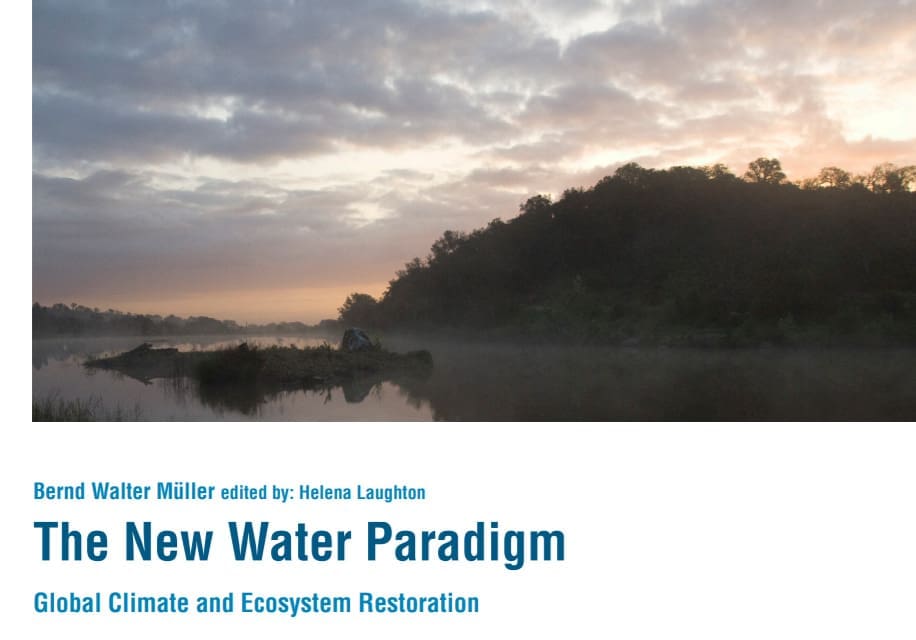
The New Water Paradigm: Global Climate and Ecosystem Restoration
Bernd Walter Müller edited by: Helena Laughton Jan Lambert’s Quick Take: Very understandable reading about the importance of the New Water Paradigm. Abstract: Most global water-related crises, such as water scarcity, drought, desertification, flooding, rising sea levels and climate change, are symptoms of long-term mismanagement of rainwater and vegetation. This results in global disruptions to…
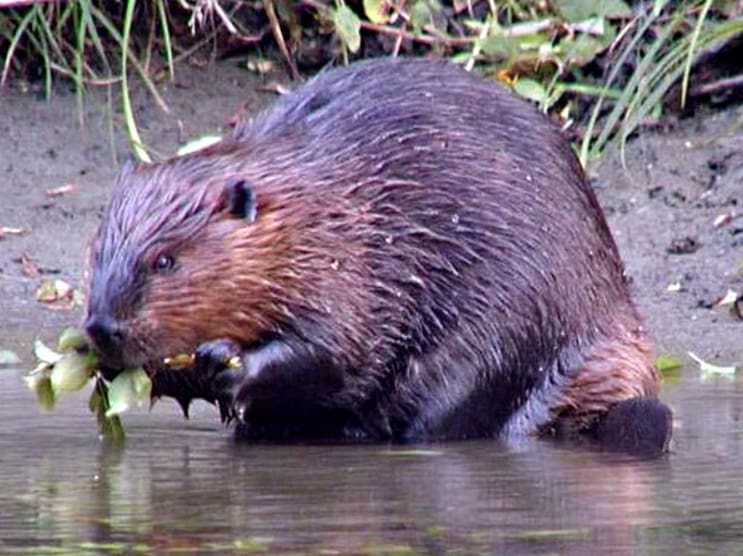
Beavers As Partners – Focus of the Valley Green Journal
FIX LINK AT BOTTOM Jan Lambert’s Quick Take: ‘Beavers As Partners’ is a community service focus of The Valley Green Journal in helping communities find non-lethal solutions to human-beaver conflicts, especially with the use of beaver deceiver flow devices to prevent flooding. Abstract: Beavers As Partners is a campaign to raise awareness of the critical…
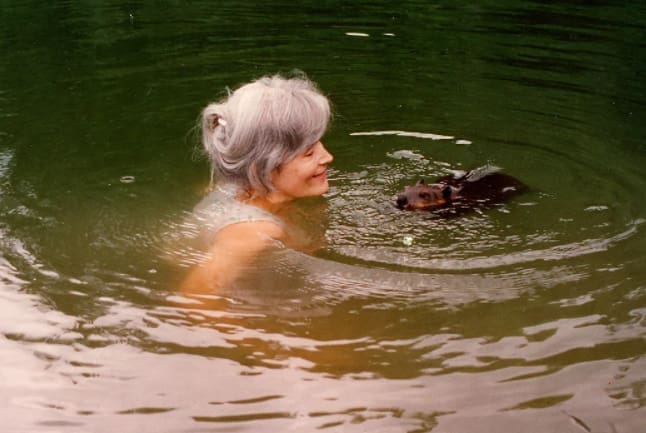
Help Save Beavers!
Jan Lambert’s Quick Take: If you love beavers you need to meet Sharon Brown, a beaver advocate who raises orphaned beaver kits as their “mother” and even takes her babies for swimming lessons! Abstract: Beavers: Wetlands & Wildlife (BWW) is an educational nonprofit that has been helping people enjoy the great benefits of coexistence with…
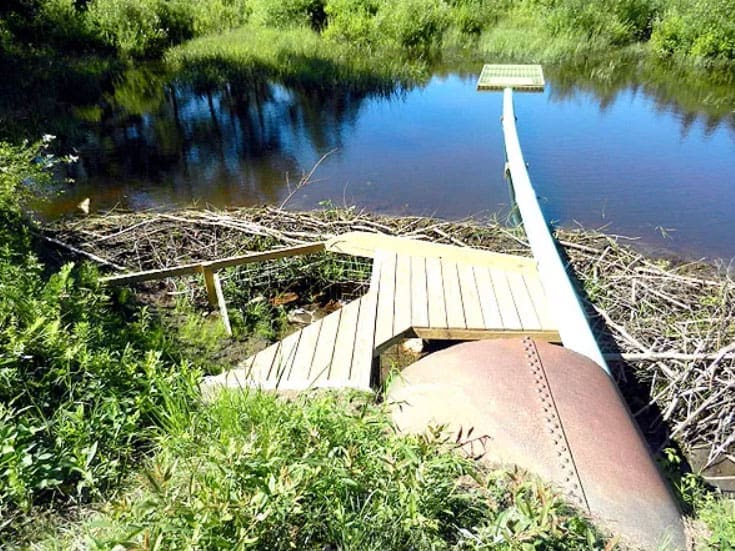
State-of-the-Art Beaver Deceiver™ in Marlboro VT
FIX LINK Jan Lambert’s Quick Take: Beavers are nature’s water engineers; they create and preserve wetlands vital to ecosystems. When beavers and human activities conflict with each other, there can be a win-win solution for both the beavers and the humans! Be sure to check out Skip’s website! Abstract: A win-win solution to human-beaver conflict…
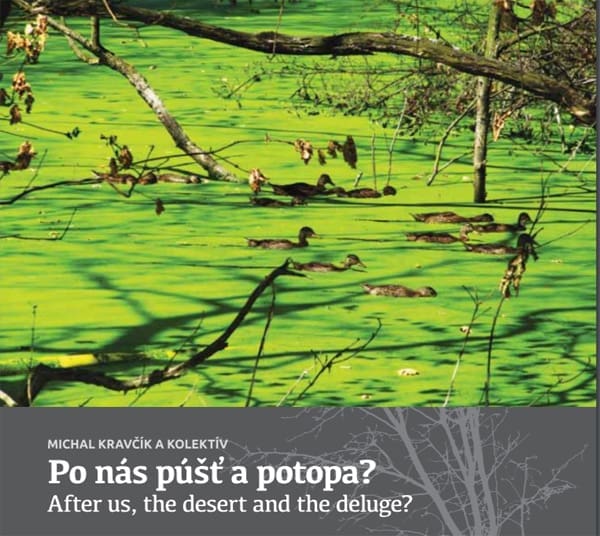
After Us, the Desert and the Deluge?
Jan’s Quick Take: This is a large and lavishly illustrated volume detailing the Slovakian “Landscape Revitalisation and Integrated River Basin Management Programme.” The book is presented in Slovakian and English languages (in side-by-side panels). This work is a unique reflection and photo-documentary, of sorts, of the insights and results from the Slovakian Program, while simultaneously…
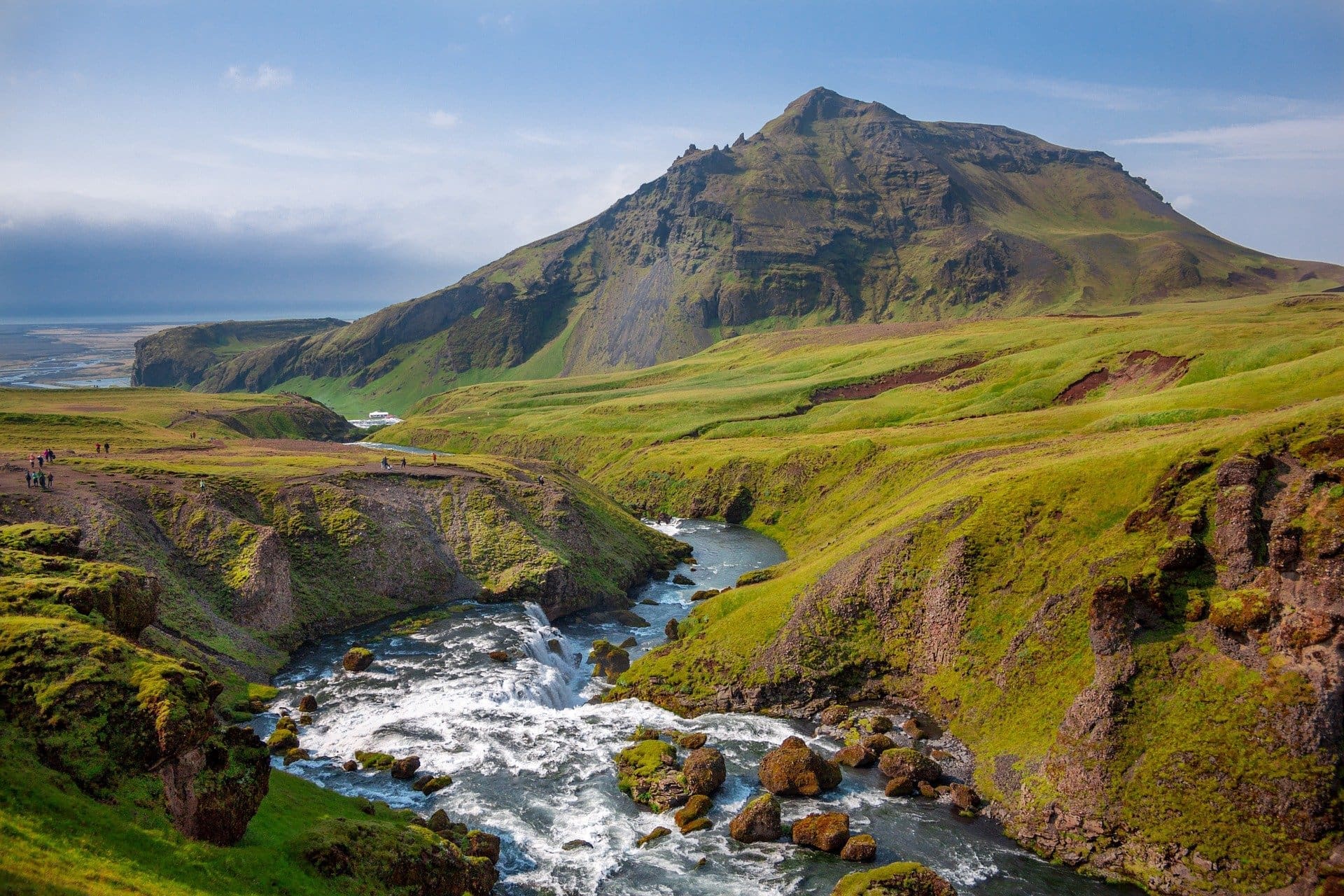
A Global Action Plan for the Restoration of Natural Water Cycles and Climate
Ing. Michal Kravčík,CSc. / Jan Lambert https://bio4climate.org/downloads/Kravcik_Global_Action_Plan.pdf Jan’s Quick-Take: This is a document intended to guide people from individuals to the national level, on addressing climate change through the restoration of short, or small water cycles, thus increasing the production potential and biodiversity of all continents through the introduction of various measures of rainwater retention.…

Water for the Recovery of the Climate: A New Water Paradigm
Ing. Michal Kravčík,CSc. / RNDr. Jan Pokorný, CSc. / Ing. Juraj Kohutiar/ Ing. Martin Kovác / RNDr. Eugen Tóth Download the english version of this book from our website Visit the authors website for all versions of the book and related documents Jan Lambert’s Quick-Take: The New Water Paradigm presents a very useful way to…
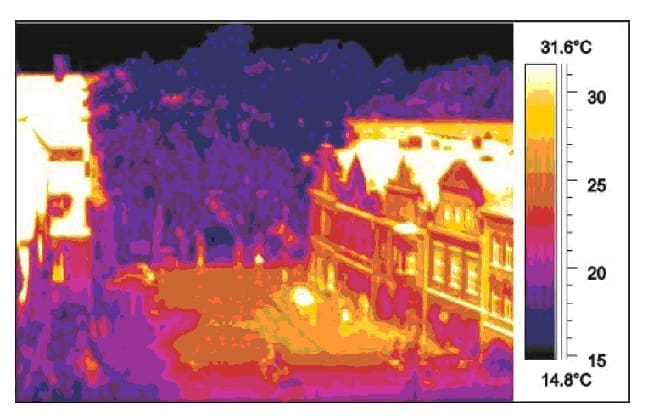
Cool It! Water and the Climate Crisis
With a record drought in California, floods in the UK and snow paralyzing areas of the South that have hardly met a plow, people are starting to make the connection between climate change and water. But generally the cause-and-effect link only goes one way, noting how climate change will affect water by putting stress on…
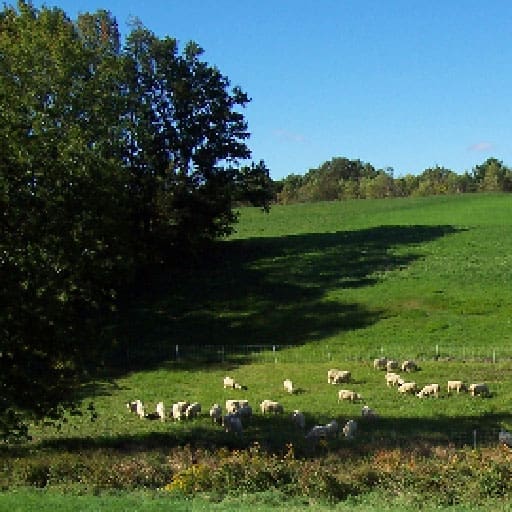
Without vast tracts of grasslands, what can we do in New England?
To pull carbon out of the atmosphere and sequester it in soils, we need to restore biodiversity: that’s the foundation of the whole show. One of the most important visible elements from the perspective of ecosystems is to cover bare ground. Bare ground doesn’t absorb water, it breaks the water cycle, it interferes with the…
